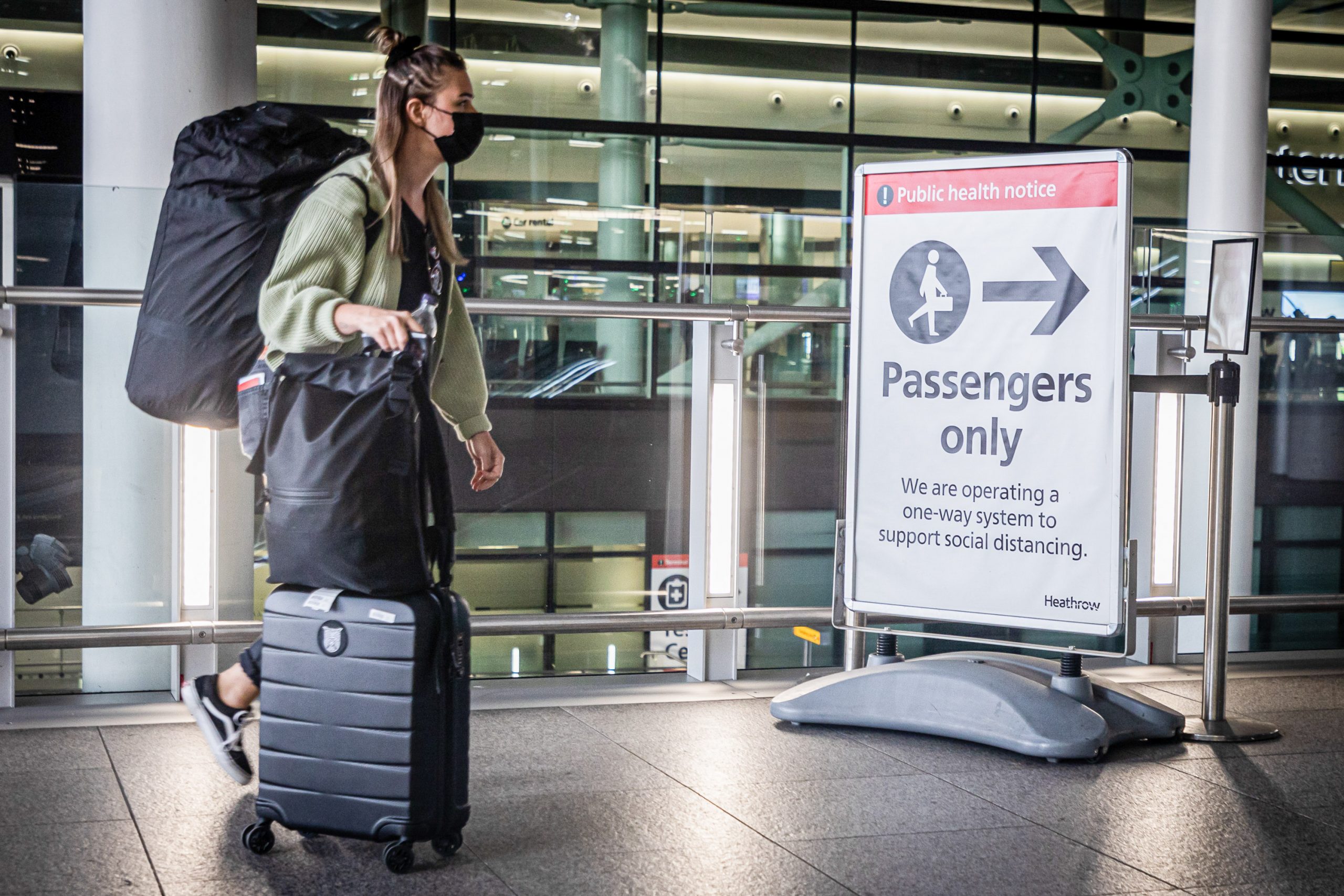Formally known as The Erasmus Programme, established back in 1987, Erasmus+ is a student exchange programme which allowed students in higher education in the European Union (EU) to go and study in another country.
Last year was the final year for students in higher education in the UK to study abroad using this programme as the UK will not be taking part since it left the EU.
Because of this, many KSA students seized the opportunity to study abroad with Erasmus+, with some of them concluding their first term abroad this month.
But how has Covid-19 affected their time studying abroad?
How their international educational experience has been impacted depends on the country visited and its current Covid-19 restrictions.
The River caught up with some KU students who are taking part in Erasmus+ and asked them about their experiences abroad studying alongside Covid restrictions.
Germany
Maddy White – working for a fashion brand, Berlin
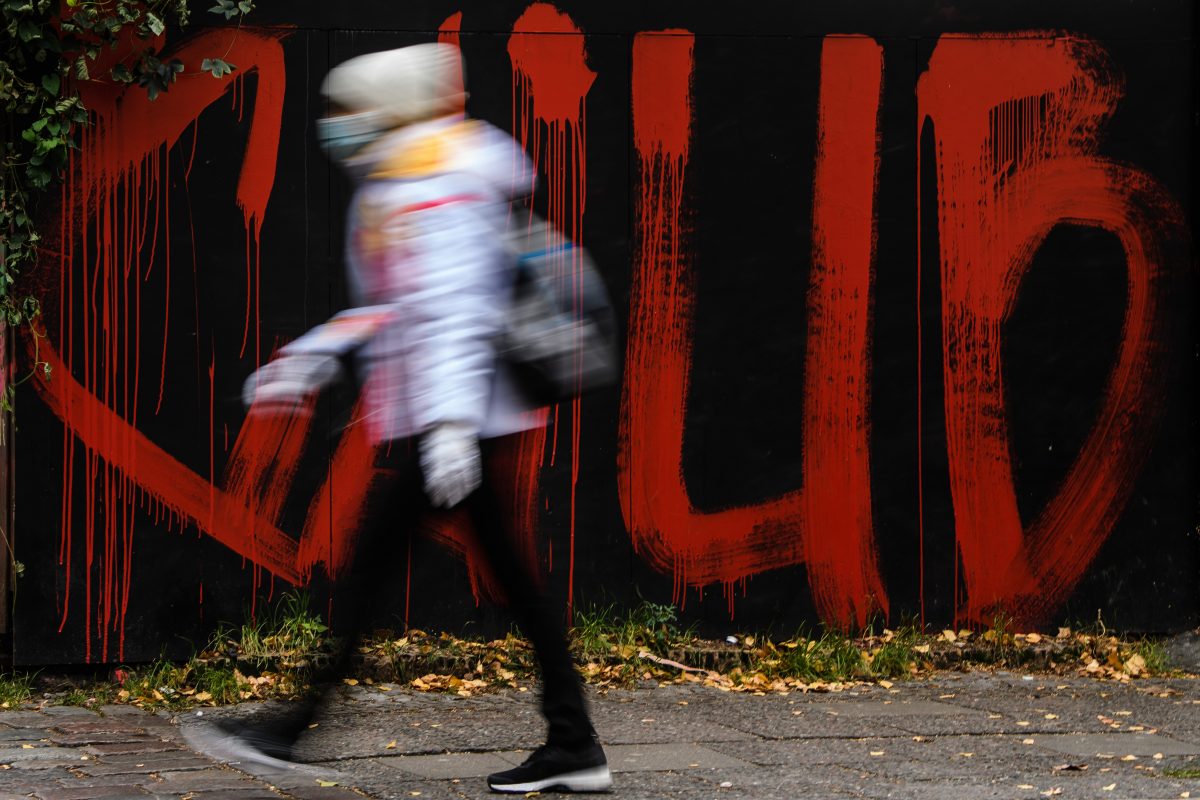
“Covid-19 restrictions are quite different to the UK. Most things are currently open but clubs and bars are either closed or have a no dancing policy.”
“If you are unvaccinated you must do a lateral flow every day to prove you are negative and that you can go into essential shops. If you’re vaccinated and boosted you have to show proof when going into every shop, including your ID.
“Everyone seems to take it super seriously so it’s mad in comparison to the UK. It affected my work as I was meant to start in early January, but because of the travel ban I was going to postpone until March, but then it changed again.”
Sam McBride – Cologne International School of Design
“When I first arrived I was pretty upset I could no longer wear my lovely handmade Covid mask. In the region I was in, it was mandatory to wear a surgical mask. It’s also upsetting because I feel like this way is a lot more wasteful.”
“With regards to studying, 95 per cent of classes have been online learning, which suited some of them pretty well. But I was able to use the facilities the entire time which was great because there was barely anyone using them.”
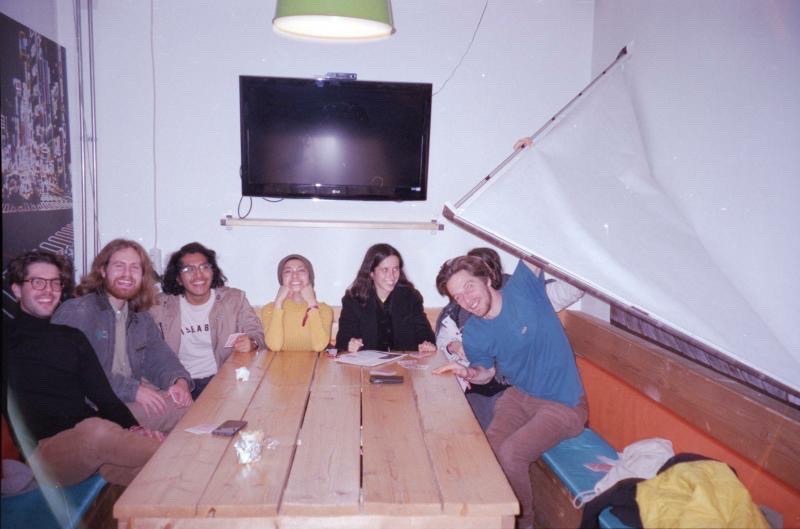
The Netherlands
Nick Lucas – interning at a print studio, Amsterdam
“Initially when I arrived in September everything was opened up and we were free to do everything, provided you have an EU Covid-19 pass.”
“After a few weeks they shut all shops at 8pm and then to 5pm as the months went on, except for essential food shops which stayed open. Over Christmas they were in lockdown but have now started to open up slowly.”
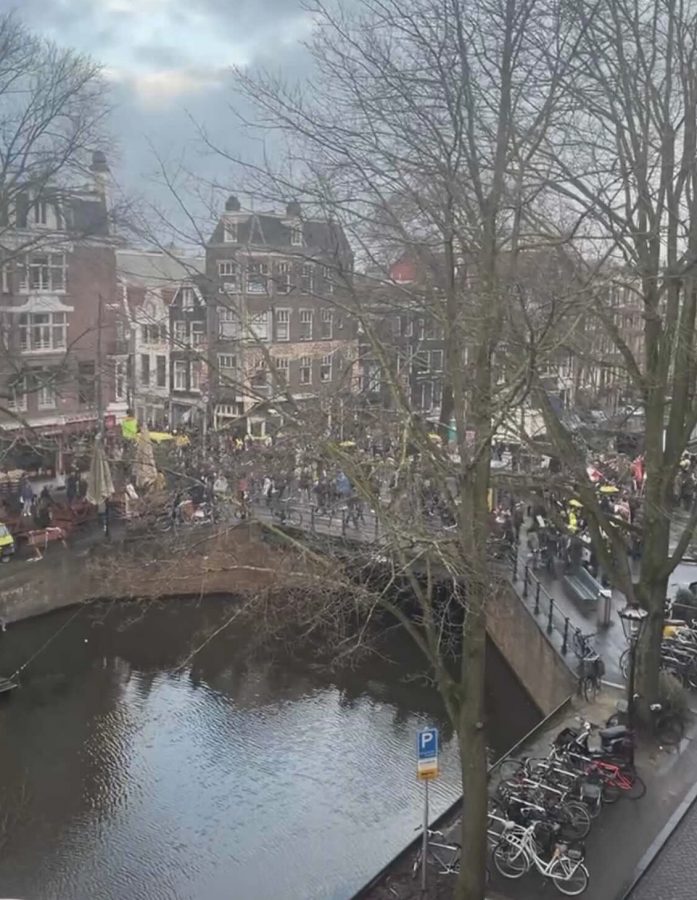
“I’m currently an intern at a print studio acting as a technician. I help artists come in and use the studios and I teach workshops.
In this respect Covid-19 has been really strange because we have always stayed open regardless and welcomed customers.
There is a massive distaste for the lockdowns and restrictions from some people. I’ve seen lots of protests during my time from my window.”
People have been protesting against Covid-19 restrictions regularly in Amsterdam. Credit: Nick Lucas
Hungary
Henry Ambrose – Moholy-Nagy University of Art and Design, Budapest
“Covid was at a stable level for most of the year until around October when numbers were going up quite a lot and we had to wear masks on public transport and inside shops.”
“Aside from the masks, Covid-19 has been really something most people ignore, it doesn’t stop anyone from going out. It’s easy to get a test, although your have to pay for lateral flows and PCR tests.”
“Only around 3 weeks at the end of the semester (in December) was affected as we had online classes and that put Erasmus students even further out of the general university community, which made us all feel quite alienated.”
“The end of year was very underwhelming. All the modules just ended with a zoom call in which we would show our final projects. I mean, the whole thing has been amazing but that was the one thing that stuck out [to me].”
Austria
Grace Talbot – University of Applied Arts, Vienna
“Currently the restrictions are masks basically everywhere however people mainly wear them on the trains or inside spaces.”
“People are very respectful of the rules here and take them seriously. You get vaccine checked for your 3rd booster in every bar or establishment you go into.”
“Uni isn’t affected too much as we can still go in and have physical classes. My university also only lets you in if you have a PCR that is no older than 48 hours.”
“There are anti-vaxxers and maskers who protest nearly every weekend down the main road that my university is on, so we do see them.”
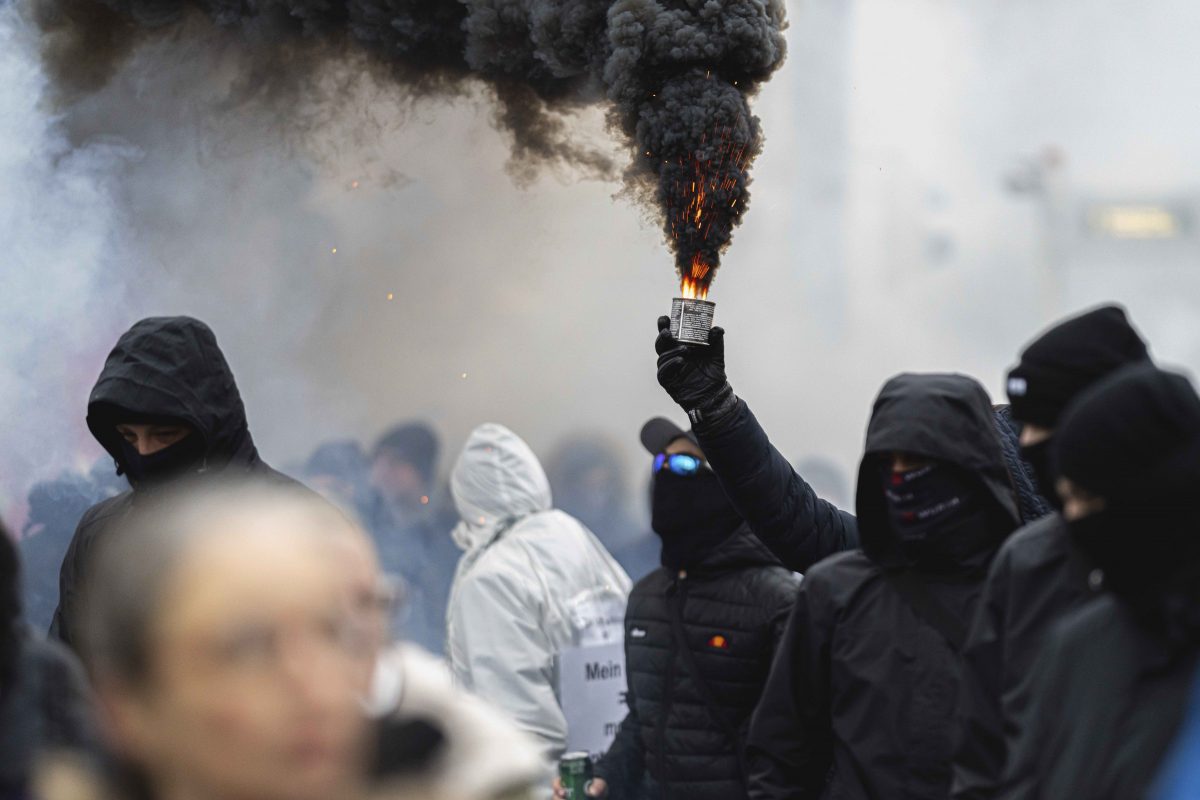
France and Spain
Alice Torres Tailfer – intern for a jewellery company in Paris and studying at TAI School of the Arts, Madrid
“I honestly loved Paris. I was vaccinated and they asked for proof of vaccination or a negative test to do most things (eating out, museums, clubs, etc) but it’s easy.”
“Now I have come to Madrid for a study semester. I caught Covid immediately so I only had one class before self-isolation.”
“Covid-wise there are absolutely no restrictions for entering bars, restaurants, and even clubs. You just wear a mask in shops which is standard (and was also the case in France).”

